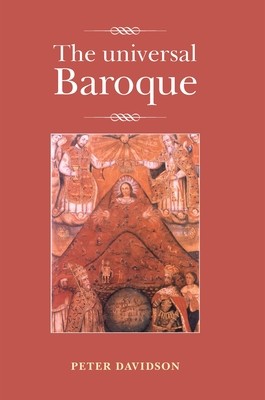
- We will send in 10–14 business days.
- Author: Peter Davidson
- Publisher: Manchester University Press
- ISBN-10: 1526126931
- ISBN-13: 9781526126931
- Format: 15.5 x 23.1 x 1.8 cm, minkšti viršeliai
- Language: English
- SAVE -10% with code: EXTRA
Reviews
Description
'The nation-state is the enemy of the baroque.' This is the point of departure of this radical, even revolutionary, re-examination of the cultural history of the early-modern world. Drawing on sources in six languages, many of them hitherto unavailable to the English-speaking reader, and touching on the visual arts, architecture, music and literature, this study frees the word 'baroque' from being a term of periodisation (and too often, in English, a term of suspicion and denial) into being the descriptor for a network of circulation of ideas, words, plants, arts and energies which encompassed the totality of the early-modern world.
This new mapping offers the hybridity of the arts of Ibero-America, the fruitful combination of the local and the international, as a way of re-examining the arts of the British Isles and Ireland, particularly the little-known Latinate high culture of seventeenth century Ireland and Scotland. It challenges also the anachronistic imposition of the modern idea of 'capitals of culture' on to the early-modern world, whose international culture fused the local and the international to the degree that remote settlements in Peru and Bolivia, a castle in Aberdeenshire, or an Episcopal Palace in what is now Serbia functioned as cultural centres as important as Madrid or London.
This challenging book forces a reconsideration of many of the prejudices of the Anglophone perception of cultural history and in doing so opens to the reader a world of wonders: the allegorical dramas of Ireland and Belgrade; the arquebusier angels of Cuzco painting; the operas and festival music of Bolivia; the vertiginous architectural fantasies of the Jacobite exiles.
EXTRA 10 % discount with code: EXTRA
The promotion ends in 24d.03:36:13
The discount code is valid when purchasing from 10 €. Discounts do not stack.
- Author: Peter Davidson
- Publisher: Manchester University Press
- ISBN-10: 1526126931
- ISBN-13: 9781526126931
- Format: 15.5 x 23.1 x 1.8 cm, minkšti viršeliai
- Language: English English
'The nation-state is the enemy of the baroque.' This is the point of departure of this radical, even revolutionary, re-examination of the cultural history of the early-modern world. Drawing on sources in six languages, many of them hitherto unavailable to the English-speaking reader, and touching on the visual arts, architecture, music and literature, this study frees the word 'baroque' from being a term of periodisation (and too often, in English, a term of suspicion and denial) into being the descriptor for a network of circulation of ideas, words, plants, arts and energies which encompassed the totality of the early-modern world.
This new mapping offers the hybridity of the arts of Ibero-America, the fruitful combination of the local and the international, as a way of re-examining the arts of the British Isles and Ireland, particularly the little-known Latinate high culture of seventeenth century Ireland and Scotland. It challenges also the anachronistic imposition of the modern idea of 'capitals of culture' on to the early-modern world, whose international culture fused the local and the international to the degree that remote settlements in Peru and Bolivia, a castle in Aberdeenshire, or an Episcopal Palace in what is now Serbia functioned as cultural centres as important as Madrid or London.
This challenging book forces a reconsideration of many of the prejudices of the Anglophone perception of cultural history and in doing so opens to the reader a world of wonders: the allegorical dramas of Ireland and Belgrade; the arquebusier angels of Cuzco painting; the operas and festival music of Bolivia; the vertiginous architectural fantasies of the Jacobite exiles.


Reviews